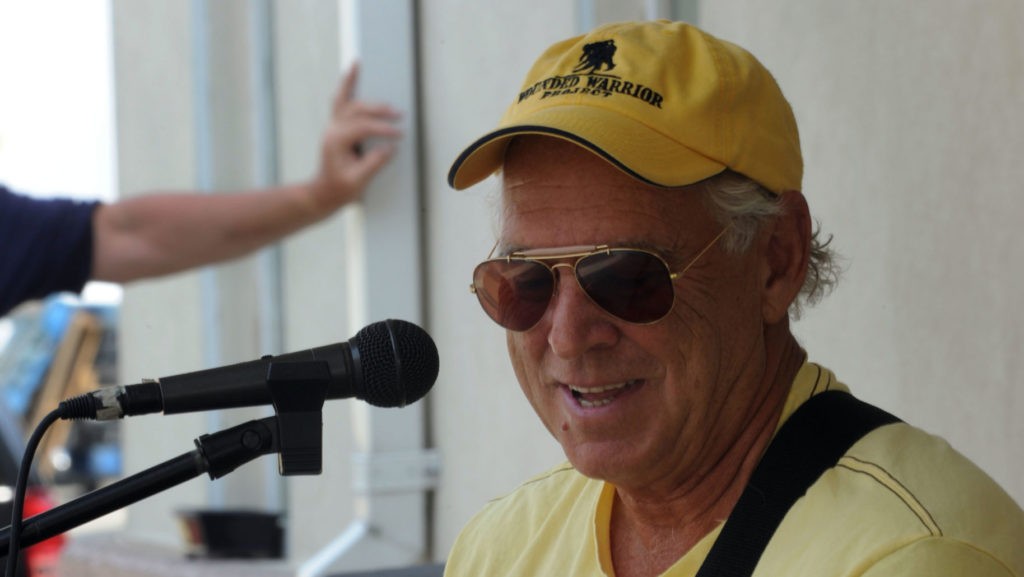Jimmy Buffett, for years an iconic purveyor of beach-themed soft rock, died Friday, Sept. 1, after living with Merkel cell skin cancer for four years. He was 76.
The “Margaritaville” singer was raised Catholic, though he did not — at least openly — appear to practice his faith later in life. But according to one commentator, Buffett’s music contained — at least upon closer examination — some deeper, and arguably Catholic, themes, especially when it came to the importance of balancing work and play.
“[I]t is clear that Catholicism left an indelible mark on his imagination,” wrote Stephen M. Metzger, a scriptor (cataloguer of Latin manuscripts) and graduate of the University of Notre Dame’s Medieval Institute, in a 2018 article for the University of Notre Dame’s Church Life Journal.
Buffett attended St. Ignatius Catholic School and went on to graduate from McGill-Toolen Catholic High School, which remains the most prominent Catholic high school in Mobile, Alabama.
Metzger said evidence of Buffett’s Catholic upbringing shone through in his work, even if his songs weren’t explicitly Catholic. His easygoing, escapist songs display “an instinctual dissatisfaction with the demands of modern work and a desire to get away, to escape and have a good time, to have fun.”
“Buffett[‘s] at times subtle and at times overt criticism of the modern obsession with work and the demands of the capitalist economy betrays a formation in Catholic teaching, especially in the Church’s social thought. In Rerum Novarum (1891), Pope Leo XIII argues for the fair and humane treatment of workers, emphasizing that time should be allotted to them in order to fulfill their religious devotions and obligations. After all, there is more to life than money and profit. It is clear that in a deep way Buffett internalized this outlook, which found expression in his celebration of the leisurely island and beach lifestyle,” Metzger opined.
“Of the many challenges facing the Church today, perhaps one of the most important is whether her educational institutions and her parishes can still form young people in such a way that they will retain a fundamentally Catholic outlook on life, even when living at their most prodigal.”
Buffett rose to prominence with his 1977 hit song “Margaritaville” and toured every year for nearly five decades, amassing vast wealth and getting married and divorced along the way.
The Mississippi-born songwriter at one point described himself as a “court jester,” weaving sometimes satirical commentary — even commentary criticizing the sometimes indulgent and lazy culture Buffett himself promoted — into his songs.
“Buffett’s identification with the role of court jester is significant. As we saw above, he has the paradoxical ability to criticize in his songs the very attitude and behavior from which he profits and also to point out the flaws in modern society and the modern economy to his audience, which in many respects comprises precisely the people who have most benefited from this situation but who implicitly know that there is more to life,” Metzger wrote.
Metzger noted that in Buffett’s 1983 song “We Are the People Our Parents Warned Us About,” Buffett reveals that “I was supposed to have been a Jesuit priest or a Naval Academy grad.”
“Like most Catholic boys, especially in the middle of the 20th century, Buffett would have been introduced in a serious way to the priesthood as an altar boy, and this experience plays an important role in a few of his songs,” he continued, mentioning a song that includes the line “mea culpa, mea culpa, mea maxima culpa.”
“There must have been a strong Catholic culture in place, if his parents thought that a religious vocation was of equal value and prestige to attending one of the country’s elite military colleges,” Metzger opined.

